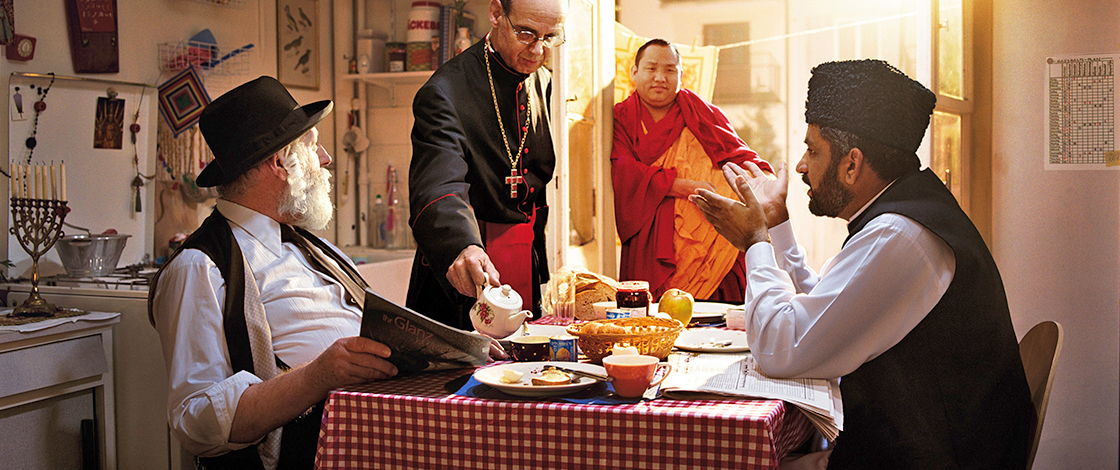Islam
In dialogue for a better coexistence
With the ‘Islam’ project, the Council of the PCS chose for itself a topic in early 2006 that has played a role in the PCS for a long time, e.g. at the Institute of Theology and Ethics, in church relations and in ecumenism. In doing so, the Council defined seven approaches and aims for the subject of Islam in Switzerland.
In setting its priorities for the ‘Islam’ project, the Council relied on these criteria:
- the benefits of theological and pastoral research for member churches;
- the specialized knowledge which the PCS’ Head Office can draw on in the areas of human rights, ethics and national or international relations;
- competence in addressing questions of social and cultural policy with the federal authorities, whenever possible within an ecumenical framework.
Sept pistes et objectifs
-
Theological aim
For the PCS, the triune God with his offer of liberation in Jesus Christ is the foundation of Christian faith and action. Christians should be witnesses to this. God works in Christians and in members of other religious communities and worldviews. On this subject, the PCS drew up a ‘Position Paper on the Question of Truth’ from a systematic theological and dogmatic perspective.
-
Pastoral-practical aim
For the PCS, the Christian faith encourages dialogue and respectful coexistence with people of other beliefs. Encounters and knowledge foster this. For work in the parishes, the PCS develops pastoral and practical guidelines for living together with Muslims.
-
Inter-church aim
The PCS actively coordinates among member churches and with aid/missionary organizations on matters pertaining to Islam. It also represents them in international networking on Islam, particularly in Europe. Every year the PCS invites those responsible for relations with Islam in the cantons to exchange ideas and coordinate joint activities.
-
Aim for religious policy
The PCS supports the rights of religious minorities since this helps promote a respectful coexistence among religions. The PCS fosters reconciliation, whether it is for Christians in Islamic countries or Muslims in Switzerland. Examples of this are the headscarf debate, mixed marriages and upbringing, pastoral care in hospitals, reception centers for asylum seekers, and prisons. The PCS is frequently informed of the situation of Christian minorities or individuals in certain Islamic countries. Similarly, some Islamic communities are demanding that their rights be respected in Switzerland.
-
Aim for human rights
The PCS wishes to achieve a careful, step-by-step clarification of the relationship between the state (federal government and cantons) and non-Christian religious communities. This concerns public religious education and the education of imams. To this end, the Swiss Council of Religions serves as a place for dialogue.
-
Ethical aim
For the PCS, faith and action are inseparable. The God of love invites people to undertake joint action for human dignity, justice, peace and the integrity of creation. The PCS works together with representatives of Islam in Switzerland and issues joint statements, for example on economic ethics, disaster relief and the question ‘Who is my neighbour?’.
-
Social policy aim
For the PCS respect for Swiss laws, democratic structures, and established culture by members of immigrant religions such as Islam is essential for a respectful coexistence. The PCS brings this concern to the attention of Muslims and the Swiss public.
